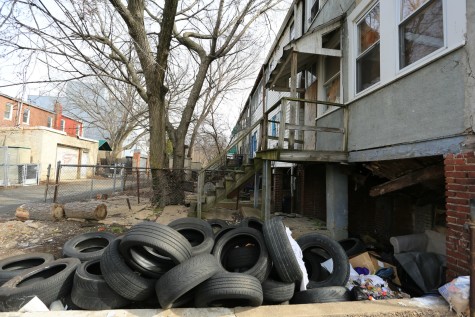Woe to the unprivileged
Olivier Douliery/MCT
While students visit the U.S. Capital on a school trip, just miles away there are thousands who are shut out of economic gains and prosperity.
Think about your life right now. You probably live in a nice home. If you can drive, then you probably have your own car. Every morning, you drive your car to one of the best schools in the nation with the intention of attending a top college. These are the wonderful things about living in the bastion of wealth that is Northern Virginia.
Now imagine someone your age who lives in a cramped apartment in Southeast D.C. Their parents probably both work minimum wage jobs. Gang activity is rampant. Graduating high school isn’t a given, especially considering the fact that schools are run-down and use old textbooks. Statistics all show that the odds of breaking this cycle of poverty is highly unlikely. So why does the rest of the population insist that it’s this student’s fault for being in this situation?
Just as you never chose to live in Northern Virginia and be the recipient of the wonderful things this area has to offer, people living in impoverished areas did not choose to be in their situations. Many like to insist that those who are economically disadvantaged are that way due to their own laziness. But the opportunities for advancement to higher education (and later, well-paying jobs) that we have in Northern Virginia, such as AP and SAT prep classes, are not widely available in areas with much less-concentrated wealth. While colleges are increasingly becoming more sensitive to these circumstances, the student in D.C., where 70 percent of students are on free or reduced lunch, may not even apply to college because of the costs of traveling to visit schools and submitting applications, things that we, in Northern Virginia, don’t think twice about.
As Americans, the idea that one can work hard to overcome any obstacles they encounter is deeply ingrained in the population’s mentality. But success, unfortunately, isn’t the result of hard work alone. Your success in life is very much correlated to the amount of money you have. So instead of buying into the mentality that those who need help should just help themselves, we need to come to terms with the fact that some situations are insurmountable without a leveling of the playing field. With a change in mentality, progress can be made in the creation of the programs and policies necessary to ensure that the American Dream can become reality for more people.




